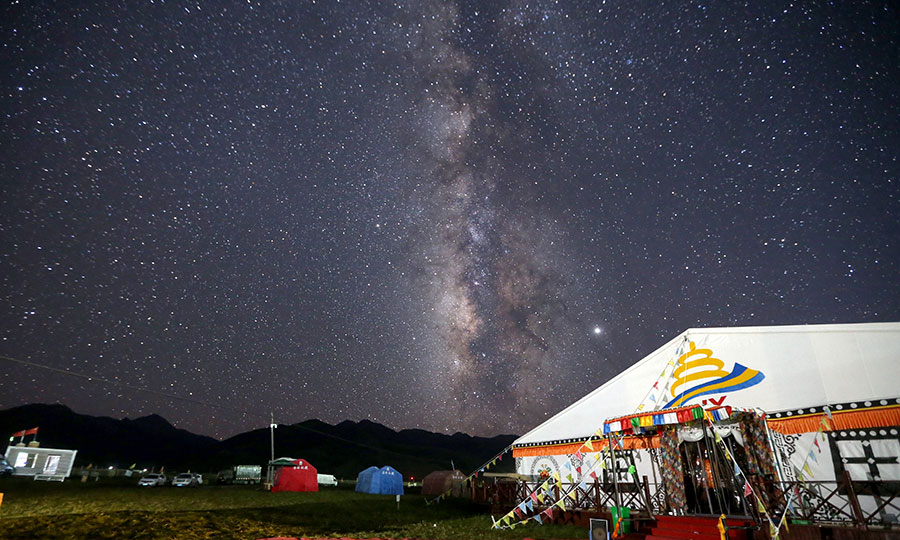'Dark night' rises for hopeful stargazers


This summer, 10-year-old Zhang Yingyue traveled with his mother more than 800 kilometers to a grassland area in northern China, just for a better view of the night sky.
The long trip was well worth it for Zhang, as the vast grassland-free from light pollution-proved to be an optimal site for observing the stars. He viewed Scorpio, Pegasus, Ophiuchus and other constellations.
"Contemplating a sky full of stars from the grassland is really exhilarating," said Zhang, an avid stargazer who has his own telescope at home and follows social media accounts about astronomy on his mobile phone.
"The pleasure from looking at constellations in the night sky can never be found in books or on mobile phones," he added.
With the development of China's astronomy education and the space industry, there has been a growing interest in stargazing among Chinese people, especially the youngsters, said Li Jian, president of Amateur Astronomer magazine.
Ma Linquan from Beijing has been stargazing since she was 3 years old.
"When I look up at the stars, I have a better understanding of the eternity of time and the infinity of space," said the 12-year-old.
"I can also feel how small I am, but I will keep exploring space."
Wu Shiying, from Hubei province, became an amateur astronomer after watching a partial solar eclipse for the first time over three decades ago.
Over the years, Wu has also become a promoter of stargazing. He has funded local schools to help improve their astronomy education, and built a small observatory on the roof of his home in the mountains.
"In the cities, the sky view is often clouded by light pollution," said Wu, 70.
"Only from our homes in the mountains can we see the amazing Milky Way."
Amid the stargazing boom, authorities and conservationists across China have made efforts in recent years to make the night sky sufficiently dark for star observation.
In 2014, China's first "dark night" park was established in Ali prefecture in the Tibet autonomous region. Following that, four more "night reserves" have been set up in Tibet and the provinces of Shanxi, Jiangsu and Jiangxi.
In a plan made public this April, the municipal government of Hangzhou, Zhejiang province, proposed designating nine "dark sky areas", where decorative lighting would be prohibited.
"We want to give our children the opportunity to be able to see the stars," said Wang Xiaodong, professor at Zhejiang University and also the main architect of the plan.




































